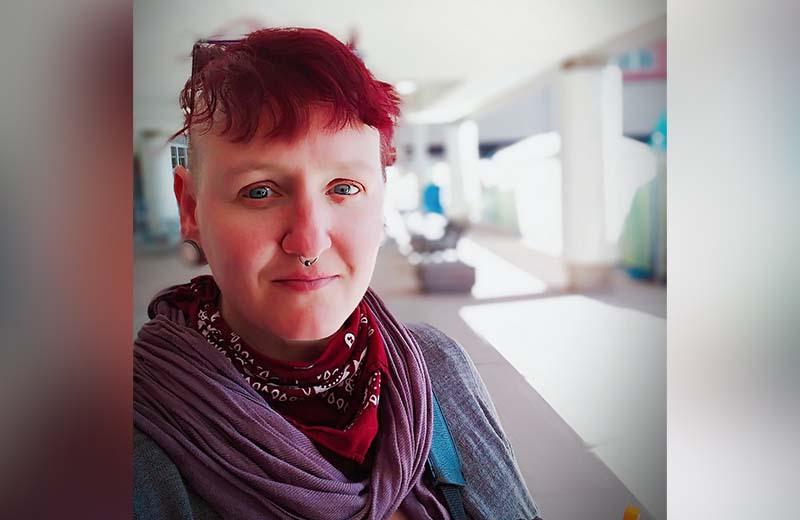This year marks the 21st anniversary of International Overdose Awareness Day (IOAD). Every year on August 31 we grieve publicly, train and educate people on overdose prevention, and advocate for better drug laws and policies.
Hawkfeather Peterson (They/Them) is a substance user and works for Northern Health as a regional peer coordinator. They work directly with peers across the North to promote substance use safety and to deliver peer feedback to guide the development of better drug policies, standards, and systemic change. Additionally, Hawkfeather offers service providers their knowledge and their lived/living expertise to improve the impact of existing overdose prevention programs and advocate for more adequate drug laws and policies. Read Hawkfeather’s interview to learn more about their role as a regional peer coordinator, learn about IOAD, and find out what actions you can take to prevent overdoses and end the stigma.
Why is International Overdose Awareness Day so important?
Events like IOAD help to shine a light on the frequency of fatal overdose loss. Stigma remains one of the leading factors that prevents adequate response to truly combat the overdose crisis. The more we can bring this urgent health care crisis into common conversation, the more we can educate the public on current, evidence-based practices. We also see lives being dehumanized by the massive number of fatalities. IOAD is an opportunity to reflect on the individuals whose lives have been stolen by the overdose crisis.
Overdose deaths are preventable. How can we help educate the public on drugs to prevent overdose and advocate for better drug policies?
The war on drugs has spread a lot of misinformation on substance use, harm reduction, and overdose. People still cling to information that is not evidence-based as being factual regarding drug use. Advocates, activists, and allies need to continue to push evidence-based information to counter harmful and stigmatizing perspectives that are pervasive in the response to drug use. I truly feel that until substance use is seen as a normal human behaviour, that substance users will continue to be “othered” and face the same barriers and limitations to proper care.
Tell me about an accomplishment as a peer coordinator that you’re most proud of.
I am very proud to see the way Northern drug user groups have expanded and several are now providing lifesaving overdose prevention services.
Why is peer engagement and establishing a network of peers important?
To provide services and create policies that will really and truly benefit people who use drugs, we need to hear from those who access these services.
The more we engage experts with lived experience, the more we stand a chance of effectively reducing death rates in a crisis that is decimating a beautiful population.
What would you like the public to know about people with lived and living experiences of substance use?
That you can use drugs and be a successful, stable, functional member of society.
The stigma surrounding substance users still exists. Why is it important to address this stigma?
Stigma kills. It is allowing this crisis to rampage through our community destroying lives and families. Prejudice is why we do not see an appropriate response to this, and many innocent lives being lost.
How can others share knowledge and act in support of reducing stigma around substance use?
Try to challenge your own biases. Speak to those with lived experience and put your ego aside if you are corrected regarding your language or behaviour.
How can people take action on International Overdose Awareness Day?
- Learn how to use Naloxone. Read about harm reduction.
- If you encounter a memorial display, take the time to really learn the names of the victims of this crisis. Try to really see the impact that this loss has created.
For information on overdose prevention in the North, including local drug alerts, drug checking services, supports, Naloxone training, and more, visit:
https://www.northernhealth.ca/health-topics/overdose-prevention














Comments